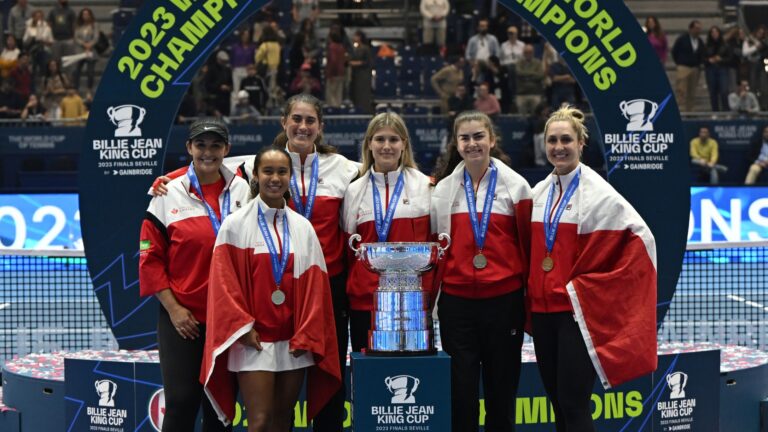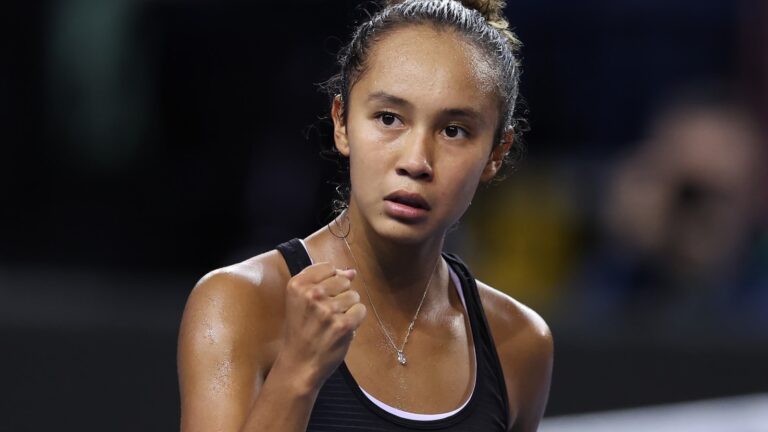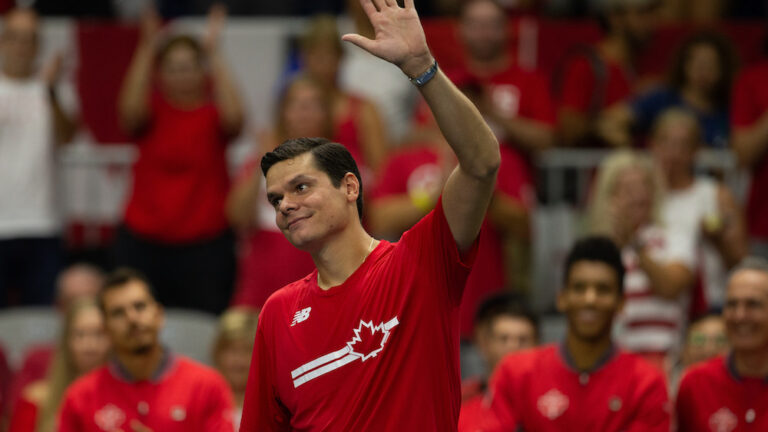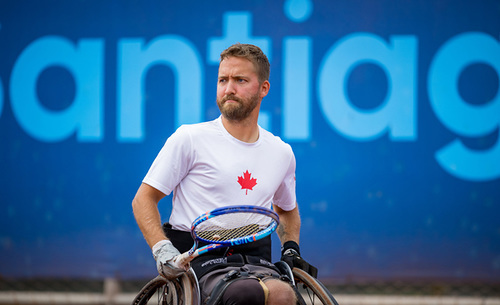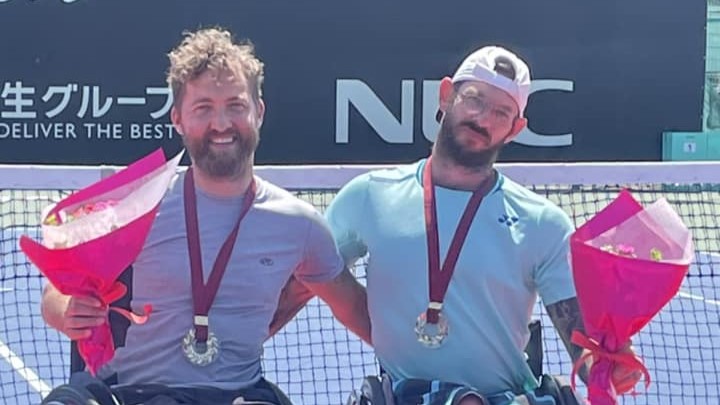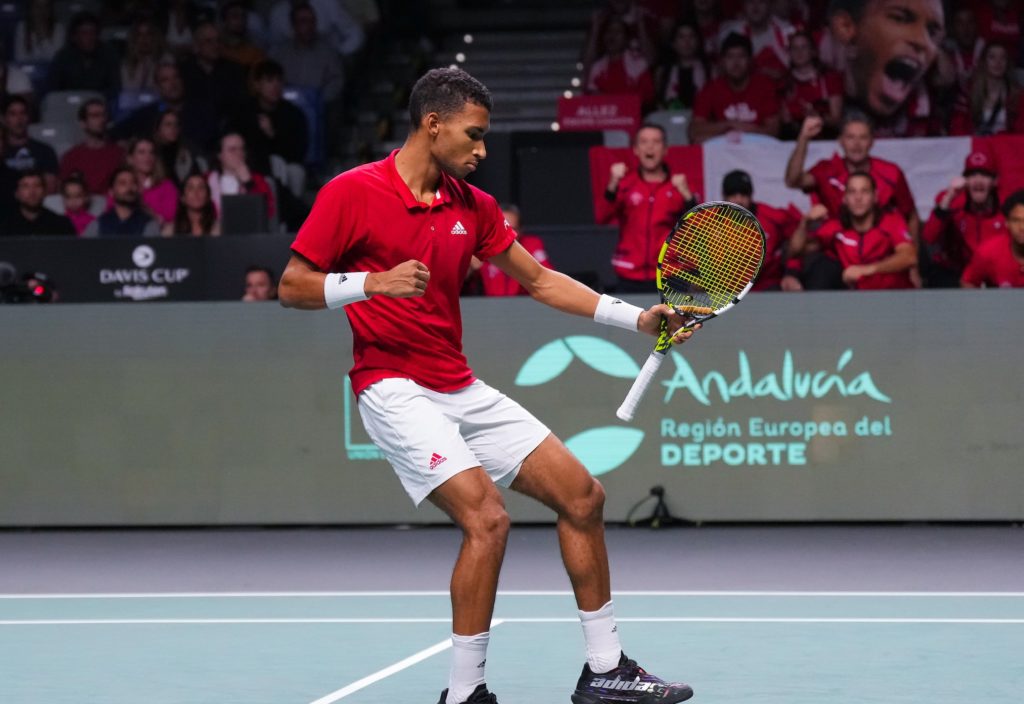
Photo : Martin Sidorjak
Captain Félix.
It has a nice ring to it.
And it’s fully deserved.
Like a ship master, Félix Auger-Aliassime set the example by winning and made the right decisions at the right time to lead his crew to the promised land and claim the holy grail.
The silver punchbowl.
Davis Cup.
For the first time in its history, Canada raised the trophy handed to the winners of the oldest, and one of the most prestigious, sporting events in the world. A 122-year-old tournament.
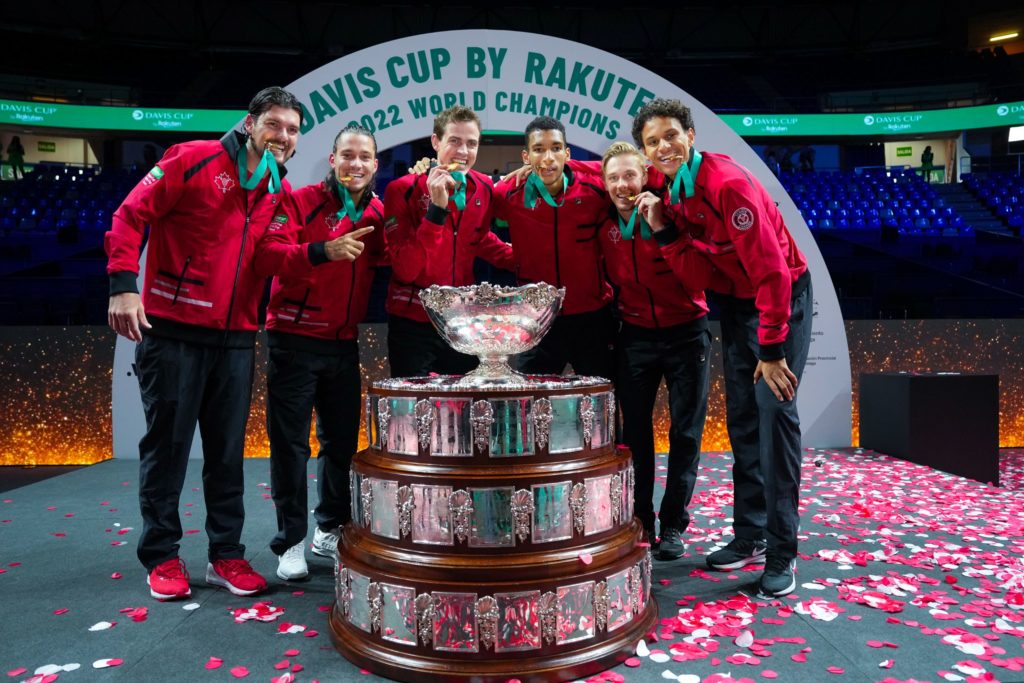
Canada first competed in Davis Cup in 1913 and spent 106 years vying for a final berth, which finally came in 2019. But substantiating the country’s claim as a serious contender took only three more years.
As for the team’s actual captain, Frank Dancevic, he won’t mind, since he must be very, very happy to have a talented warrior like Félix on the squad—a player whose performances earned him his status as a leader.
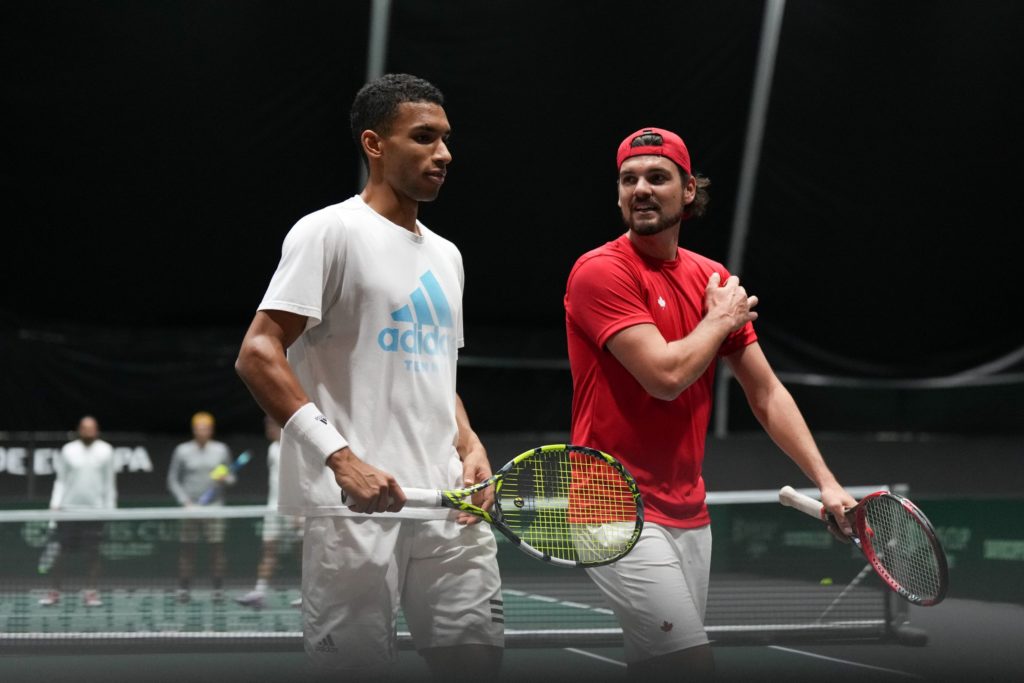
Yes, Captain Félix. Just like his predecessors Captain Milos (Raonic) and Captain Daniel (Nestor), whose major wins in singles and doubles put Canada on the Davis Cup map and ultimately opened the door to the former World Group.
What’s more, Auger-Aliassime contributed to both components of Davis Cup competition: singles and doubles.
Canadians like Daniel Nestor, Grant Connell and Sebastien Lareau showed great versatility, and that versatility combined with key wins and titles make a captain.
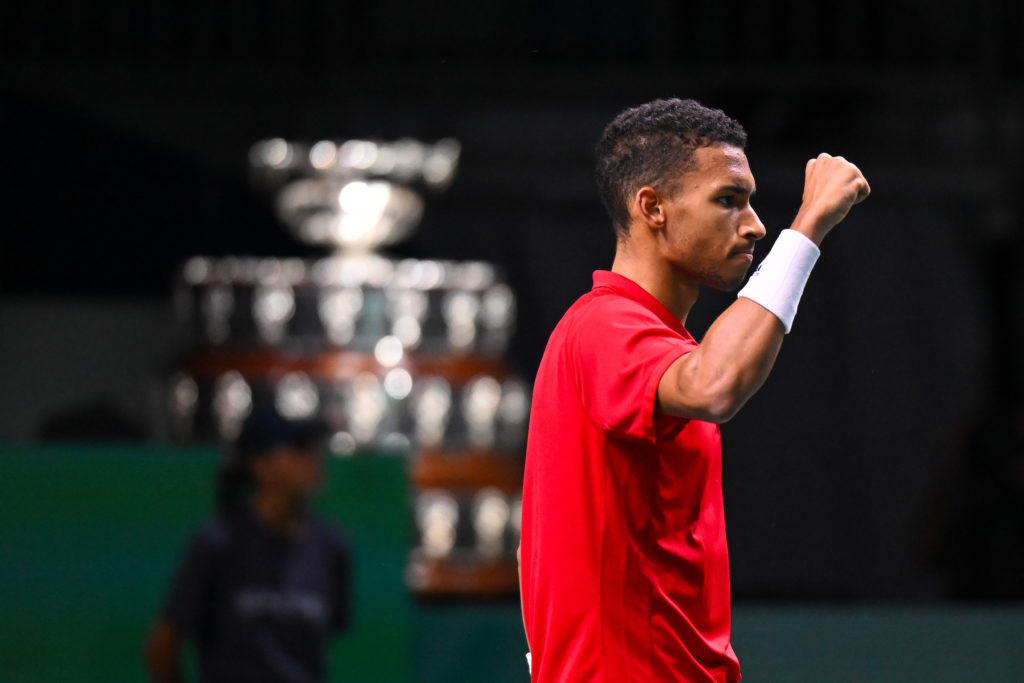
In Valencia, Félix’s singles and doubles play helped Canada qualify, even without Shapovalov. And in Malaga, he turned the tide in the ties against Germany and Italy, which Canada both won 2-1.
Then, despite being less dominant than usual on his serve, Félix found a way to expunge a string of break points and hit eloquent winners to close out lengthy rallies against the ever-dangerous Alex de Minaur.
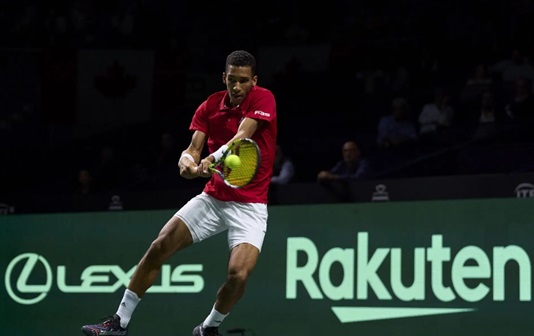
The mark of a champion.
The mark of a Captain Canada!
On top of everything, Félix emphasized how his teammates were a source of encouragement, spending six or eight hours on the sidelines cheering on every point and providing motivation when things got dicey. They all put their egos aside for the greater good.
That’s the mark of a great leader.
A 22-year-old leader.
Level up
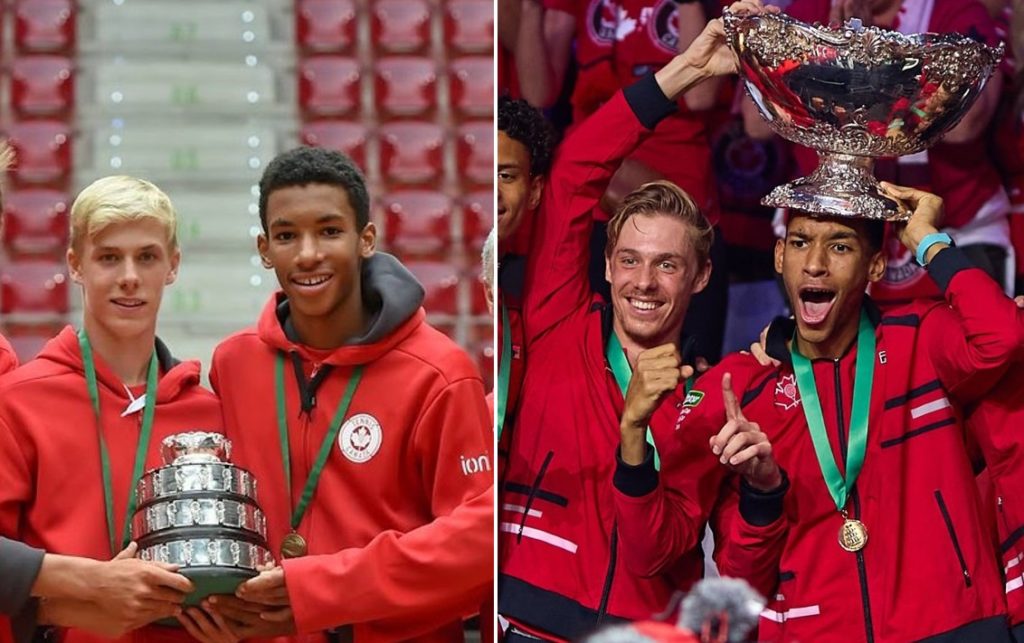
Félix Auger-Aliassime and Denis Shapovalov made Canada one of the few nations to double down in Davis Cup with the junior and pro titles.
That’s two in seven years.
The homegrown heroes, who helped Canada become the 16th country to etch its name on the hulking trophy, had already put their stamp on the 2015 Junior Davis Cup introduced by the International Tennis Federation in 1985. Led by Oded Jacob and with Benjamin Sigouin in tow, Denis and Félix took Madrid by storm.
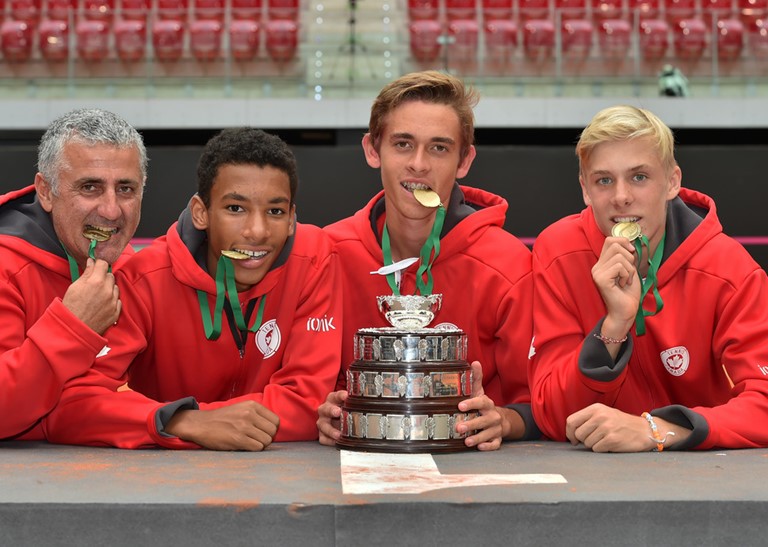
Back on the Iberian Peninsula seven years later, they did it again. That’s something only 10 other countries have managed to do.
Davis Cup titles
| Pro | Junior | |
| USA | 32 | 3 |
| Australia | 28 | 6 |
| France | 10 | 4 |
| Great Britain | 10 | 1 |
| Spain | 6 | 6 |
| Russia | 3 | 3 |
| Czechia | 3 | 3 |
| Germany | 3 | 3 |
| Italy | 1 | 1 |
| Canada | 1 | 1 |
Though the younger of the two led the quest, Shapovalov’s contribution is key.
His win over Thanasi Kokkinakis in the first singles match in the tie against Australia provided invaluable support, since it gave his teammate more wiggle room in the task ahead. It was also a comfort considering Shapo’s previous singles bouts.
After his first two outings, Denis must have felt pretty miserable. His three-set losses to Jan-Lennard Struff of Germany and Lorenzo Sonego of Italy were long and arduous battles in which his serve (19 double faults) and his failure to capitalize on opportunities (3 breaks in 21 chances) sunk him.
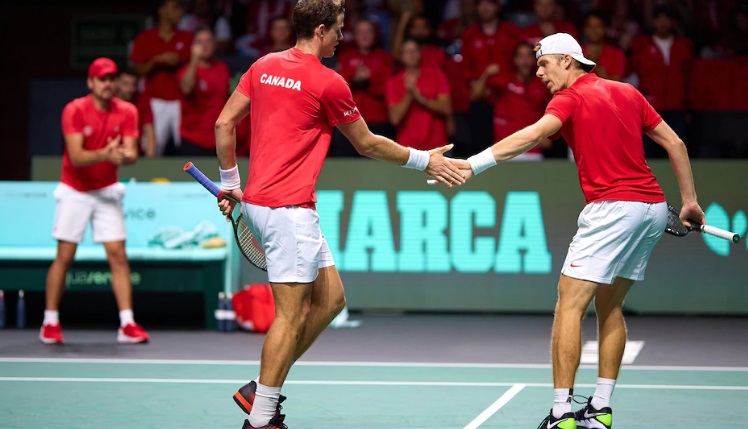
Still, he can be especially proud of his doubles match with Pospisil against Kevin Krawietz and Tim Puetz of Germany, who were previously undefeated at Davis Cup.
And, of course, that take-down of Kokkinakis.
Two first-rate reasons to really revel in the triumph he had such a hand in securing.
FAANTASTIC
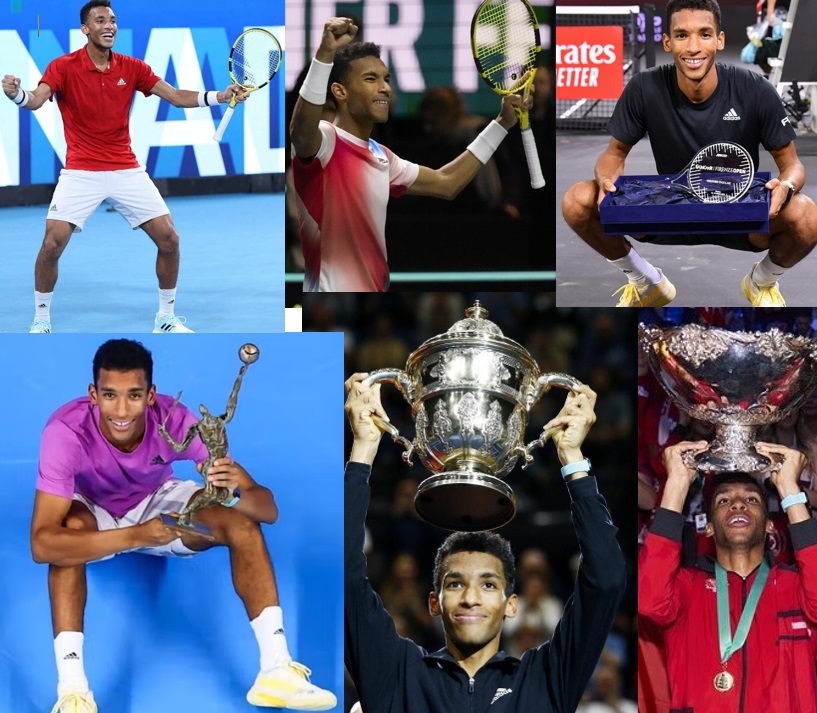
The expression well-deserved rest very much applies to Félix Auger-Aliassime.
After 11 months of competition culminating in a FAAntastic record, the Canadian can take a break in snowy Montréal or Québec or on a golden beach in the tropics.
Auger-Aliassime took home four singles titles from five finals, made an appearance at the ATP Finals and closed out the year as World No.6.
His record in team tennis is equally brilliant, since he led the four crews he played on to victory.
There was the ATP Cup in January and Laver Cup in September, where he overpowered Novak Djokovic and kicked off a comeback that carried Team World to the title for the first time since the tournament’s inception.
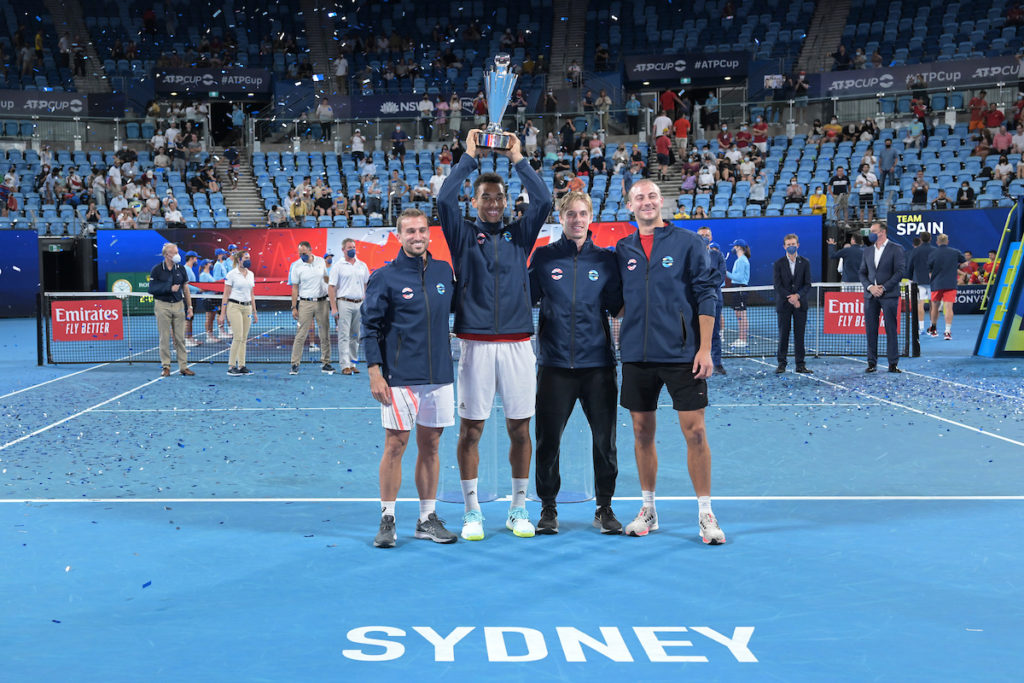
And there were two episodes of Davis Cup, in Valencia and Malaga, where he earned the title of Captain Canada.
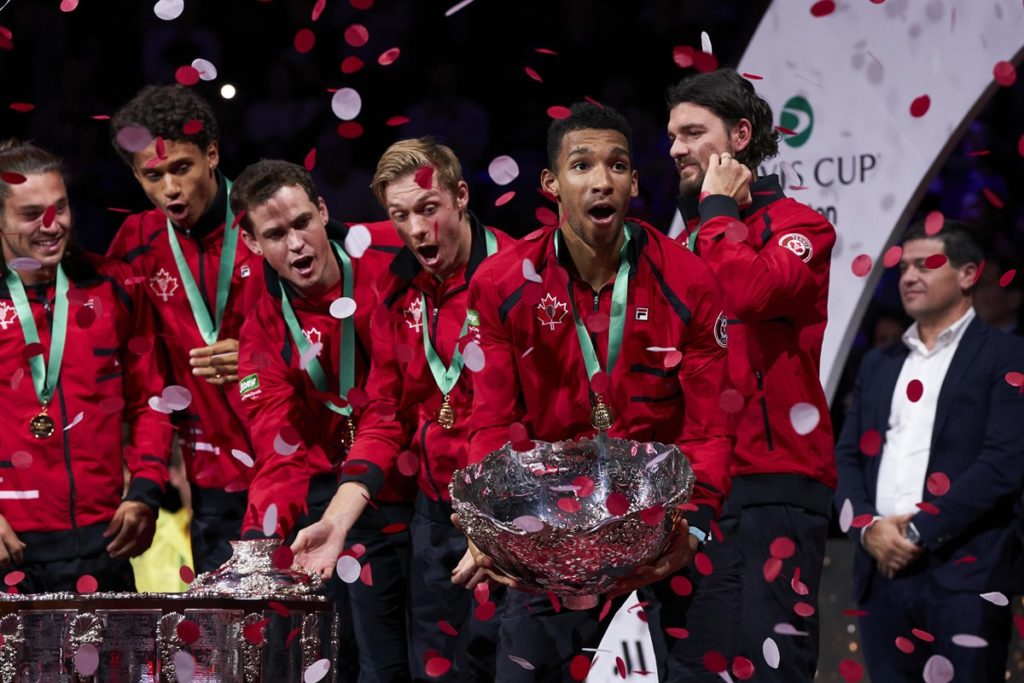
Félix has become one of the most terrifying servers on the Tour. Developed slowly but surely through hard work, his serve helped him rack up 890 aces (in 81 ATP matches) this past season. That’s only five less than ace leader John Isner. Averaging 11 aces per match, Auger-Aliassime saved 67% of the break points he faced (6th in the ATP).
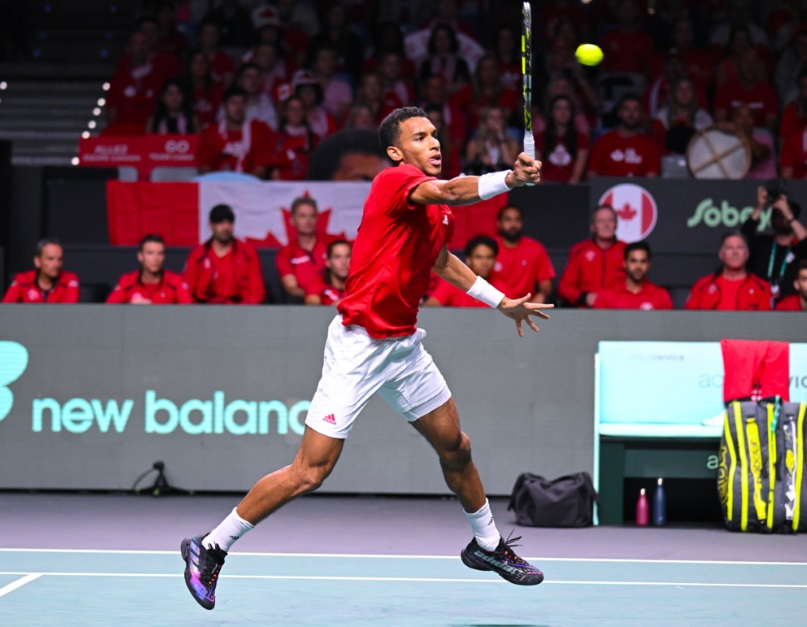
He wrapped things up by leading the country to the ultimate conquest: Davis Cup.
And as was often the case during this unforgettable season, Sam Aliassime was front and centre. What a touching moment to see Félix run up to hug his dad after the win.
What Frank knew
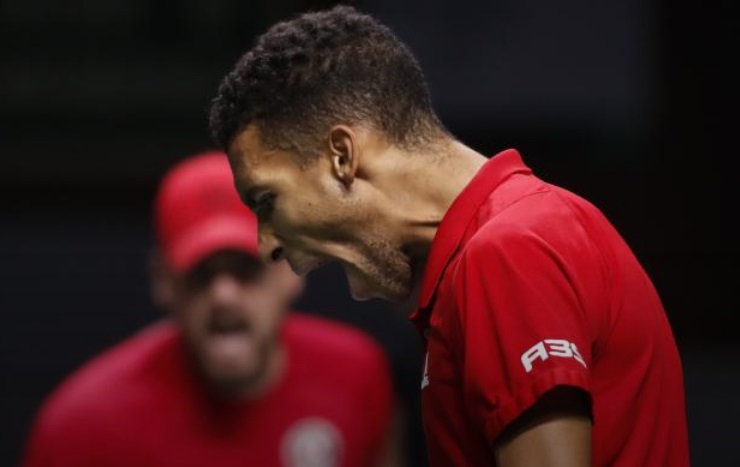
The captain of the Canadian team dispatched to the Davis Cup Finals was confident from the get-go.
He’d made that very clear in an interview he gave before heading off to Spain recounted here on the day before the tie against Germany.
The title really does say it all.
In addition to the standard rhetoric of a leader who’ll settle for nothing less than the crown, Dancevic emphasized the depth of his roster.
While he named all five players even though Gabriel Diallo and Alexis Galarneau probably wouldn’t have to walk out onto the court, it was clear he was referring to the other three, all members of the Top 100.
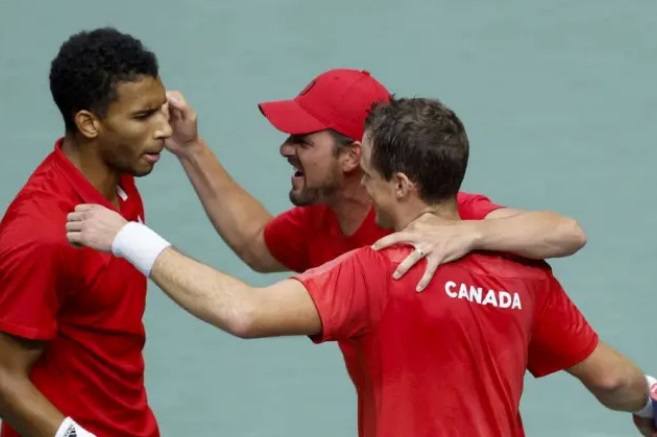
Even if one of our two singles stars were injured, Vasek Pospisil certainly had enough experience and talent to take on the likes of Struff, Otte, Musetti, Sonego or Kokkinakis. Because in Davis Cup, anything can happen.
And how could Dancevic not feel good about his doubles combinations: Vasek and Denis, Vasek and Félix or Denis and Félix? Considering how important two of those pairings were in the back-to-back ties against Germany and Italy, depth was definitely decisive.
Now that all is said and done, the interview resonates all the more: “Vasek with either Denis or Félix are great match-ups. We have a few choices. We just have to put ourselves in a position and who knows what can happen? We feel we can win this thing. That’s the next step.”

Sitting courtside at Davis Cup was Guillaume Marx, head of performance at Tennis Canada. He left Spain a happy man.
Upon his return, he struggled to sum up his feelings: “I’m impressed, very proud and moved by what the team accomplished. Winning Davis Cup for the first time is a major achievement for tennis and sports in Canada. Led by our captain, Frank, and by Félix Auger-Aliassime, who really fulfilled his leadership role, our players were all at their best in the competition.”
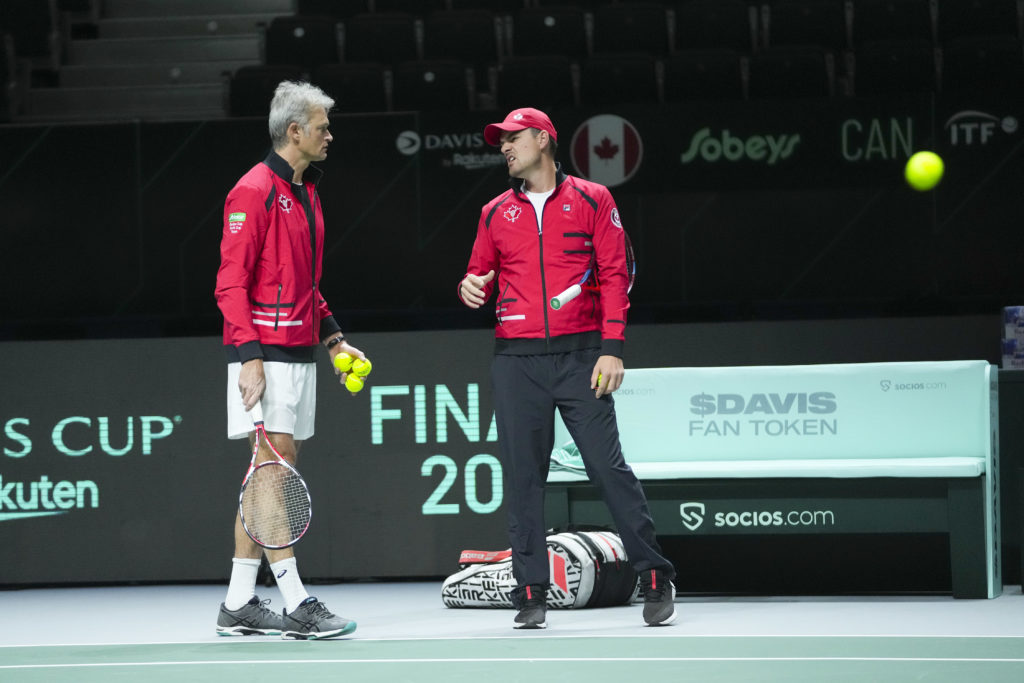
For Marx, the victory is an unforgettable one. “The team’s already made history!” he said.
And then there’s Louis Borfiga, the man who set Canadian tennis development in motion 17 years ago.
It was his system that identified, targeted, developed and prepared players like Raonic, Pospisil, Shapovalov and Auger-Aliassime for their brilliant careers and Davis Cup performances. Part of the plan was to bring in trusted men like Marx, Frédéric Fontang, Martin Laurendeau and all the others who are currently mentoring our elite in men’s tennis.
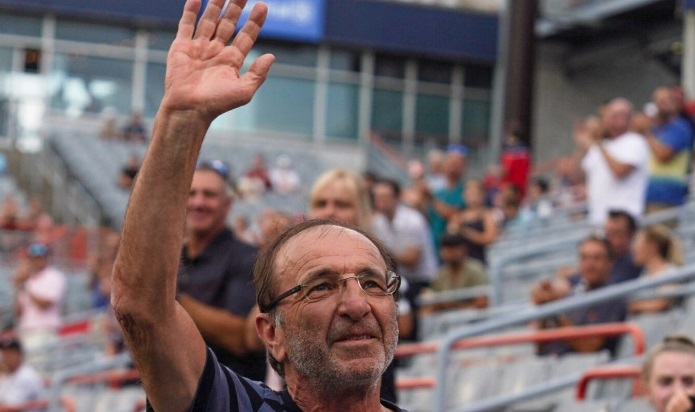
In an interview he gave from his home outside Paris, Borfiga said he didn’t miss a match of Canada’s three ties in Malaga.
“Everyone knows my reservations about the new Davis Cup format, but I wasn’t going to leave my kids alone out there, so I watched them all,” he said. “Félix impressed me as a leader by taking on the role and carrying the team to success. Vasek once again demonstrated his skills at Davis Cup. He’s a great doubles player and a great player under pressure. If anyone deserved to win it, especially considering his loyalty to Davis Cup, it’s Vasek.”
Borfiga, who competed at Davis Cup decades ago, knows how tremendous the achievement truly is. “To have your name on the trophy is to stake your claim as one of the world’s strongest tennis nations.”
====================================================
Email: privard@tenniscanada.com
Twitter: @paul6rivard
Follow all our Canadians in action here.
